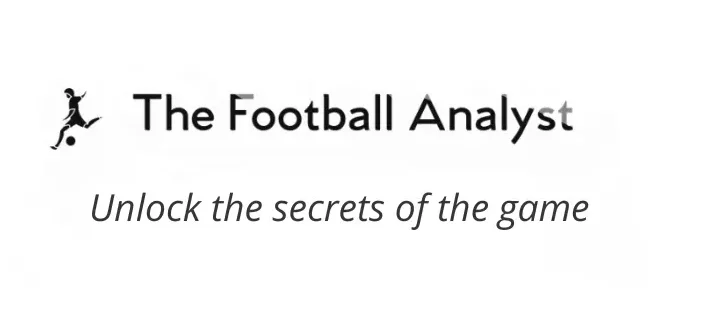In football management, tacticians play a pivotal role in shaping the destiny of their teams. One such strategic mind is Maurizio Sarri, who has now taken the reins at Lazio. Known for his distinctive brand of attacking football and a penchant for meticulous tactics, Sarri’s arrival has stirred anticipation among football enthusiasts. This tactical analysis delves into the strategies, formations, and principles that define Sarri’s approach at Lazio. Join us on a journey through the intricacies of Maurizio Sarri’s tactical playbook as we unravel the game plan that could potentially reshape the fortunes of the Roman club.
Build-up
Sarri sets his team up in a 1-4-3-3 formation in the build-up. In the high build-up, he likes pushing the number-eights high up:
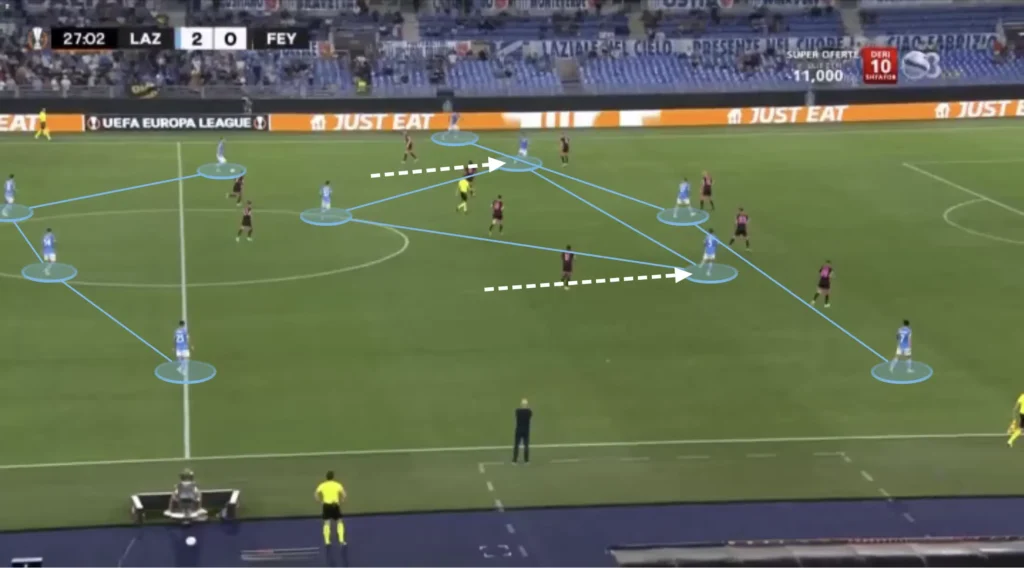
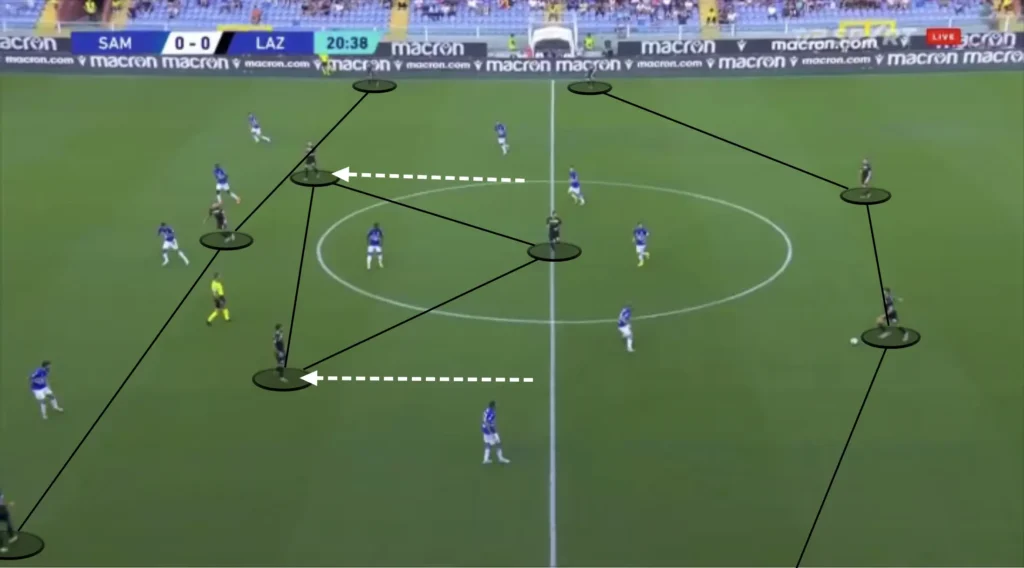
The high number-eights create a 5v4 numerical advantage against the opposition backline. Lazio can, therefore, easily find 2v1 situations against a center-back or fullback. One frequent pattern of this superiority is when a center-back has to push up on one of the number-eights. The space behind the center-back opens up, allowing the striker to run into the space and receive the ball for a 1v1 against the keeper.
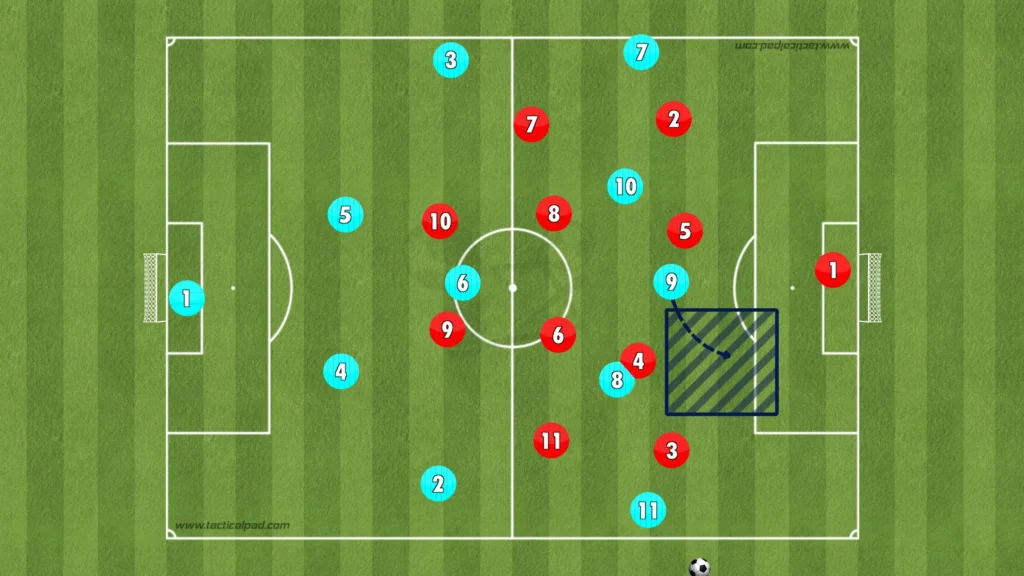
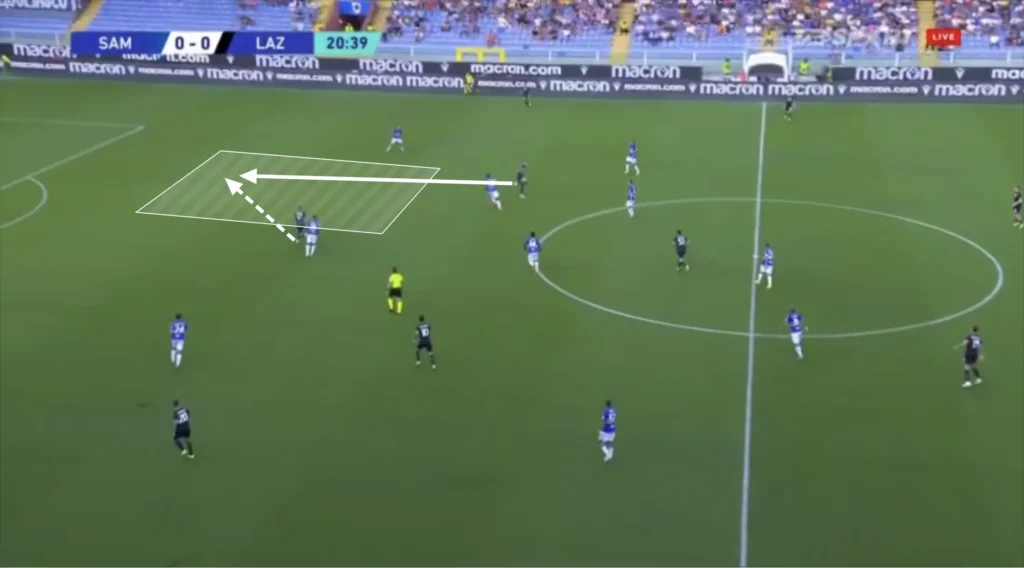
In the low build-up, the Lazio number-eights drop lower down the pitch, close to the backline.
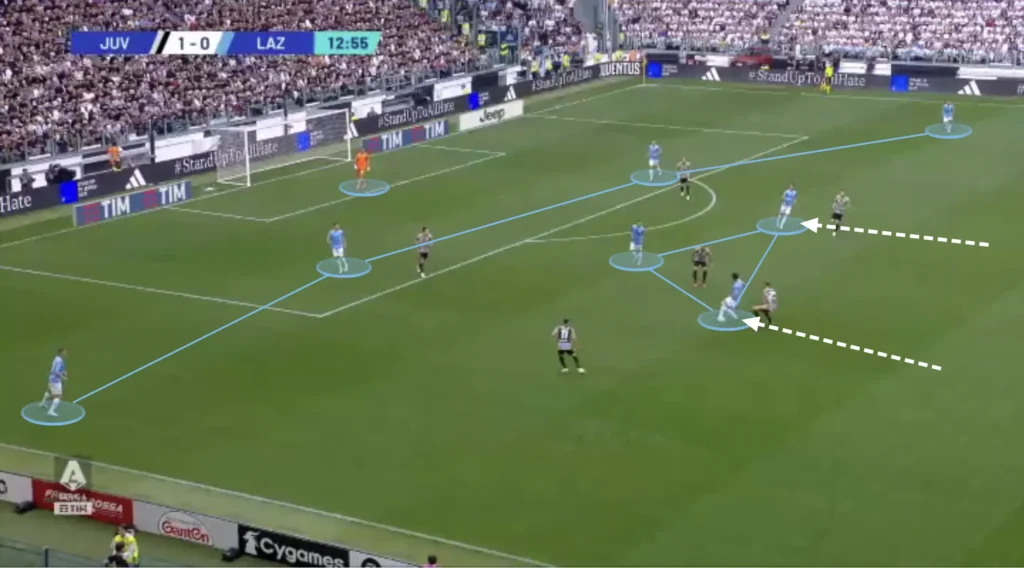
This attracts many opposition players, which opens the space between the opposition’s midfield and backline, similar to what Roberto De Zerbi likes doing. The attacking players can drop into this space, receive the ball, and create chances by attacking the defense.
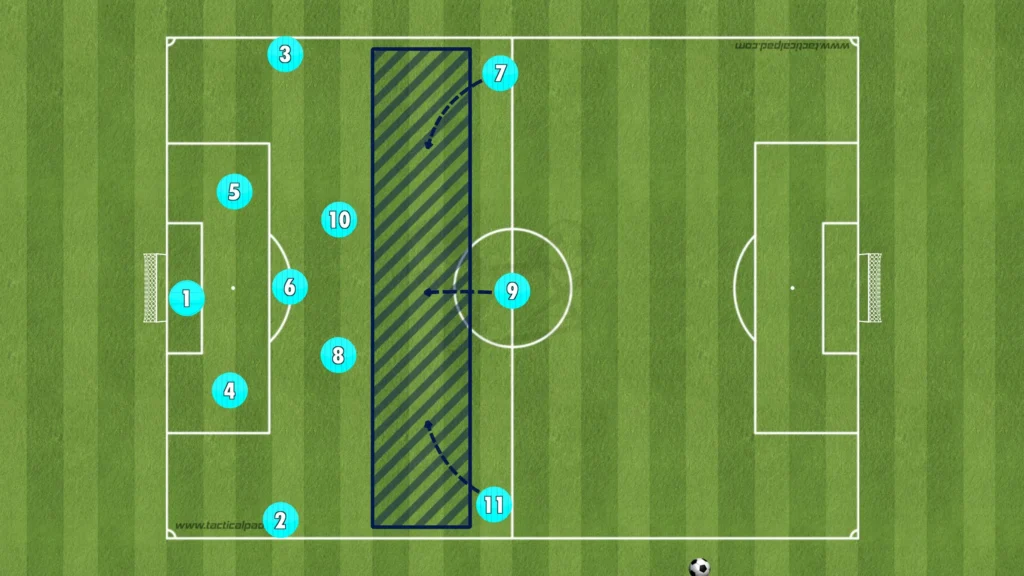
Final Third
Attacking the Half-Space
Lazio is an excellent team in the final third. They always create many chances, mainly by attacking the space between the opposition center-back and fullback.
They usually do this from the wide areas with underlaps from midfielders, creating a 2v1 with the winger against the opposition fullback:
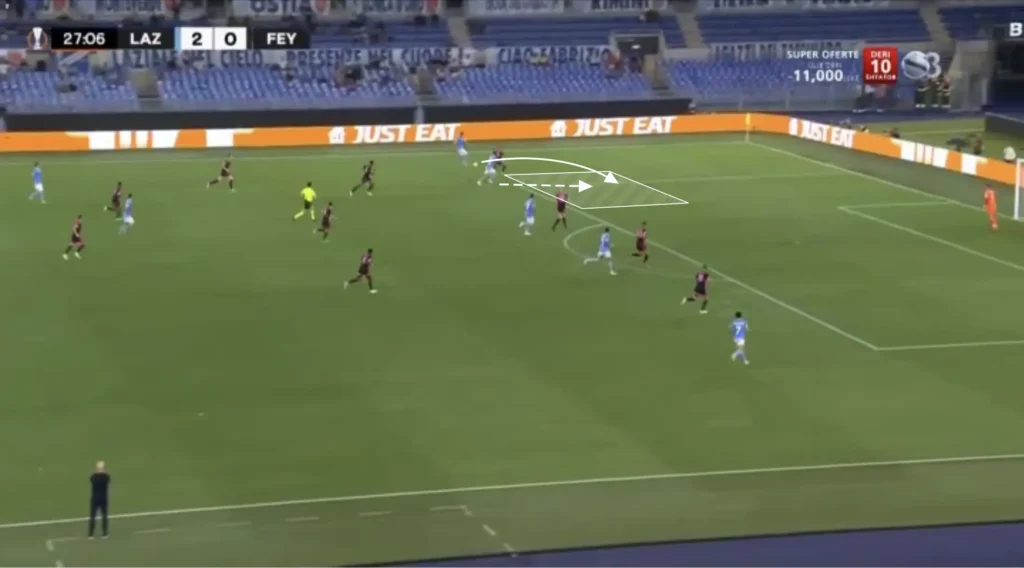
This 2v1 creates questions for the opposition fullback. If he drops to cover the underlapping run, the winger could cut inside, take a shot, or combine with a midfielder. If the fullback covers the center, the ball can easily be played to the underlapping player, creating a crossing opportunity.
They also attack the half-spaces with midfield runs and passes from the center:
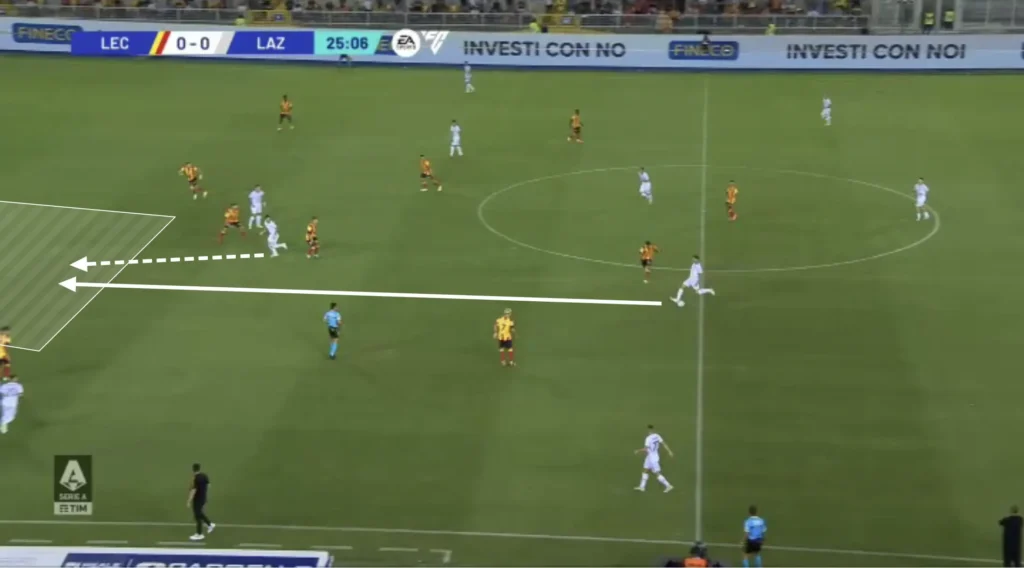
Overlaps
Lazio also use the overlap to produce opportunities in the final third. When the winger gets the ball, the ball-side fullback quickly makes the overlap, creating a 2v1 on the wing. Like the underlap, if the opposition fullback drops to cover the overlapping run, the winger could cut inside and take a shot or combine with a midfielder. If the fullback covers the center, the ball can easily be played to the fullback, creating a crossing opportunity.
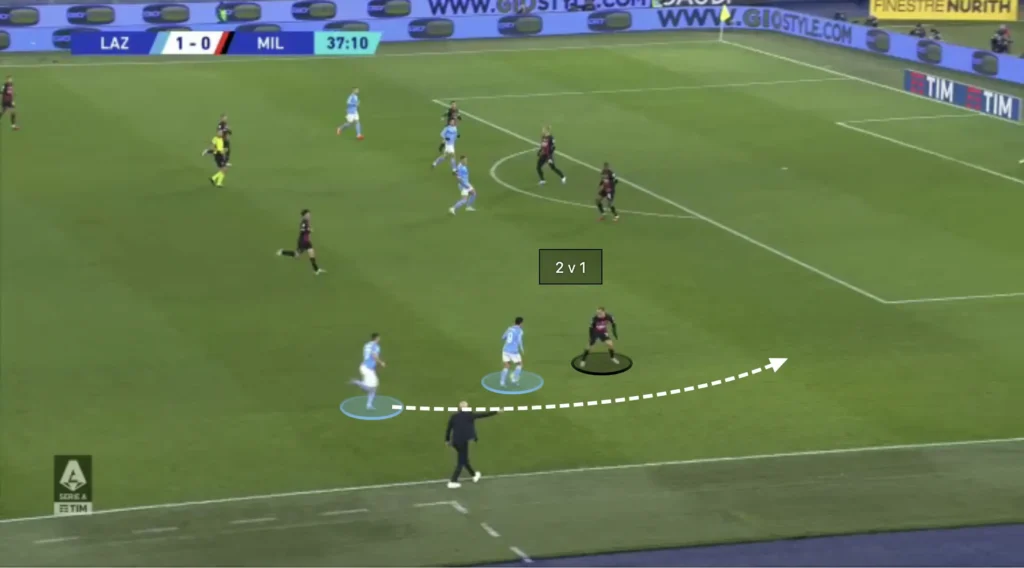
Many Players in the Box
The attacking midfielders also look to make runs into the box when the ball is in the final third, often getting four or five players into these areas to create overloads. The numerical advantages in the box force the defending team to make decisions and leave some players open. The open player can receive a cross or a pass and get a great goalscoring opportunity. Lazio usually get at least four players into the box in crossing situations. Sarri also positions many players outside the box, ready for the second-balls and cut-backs.
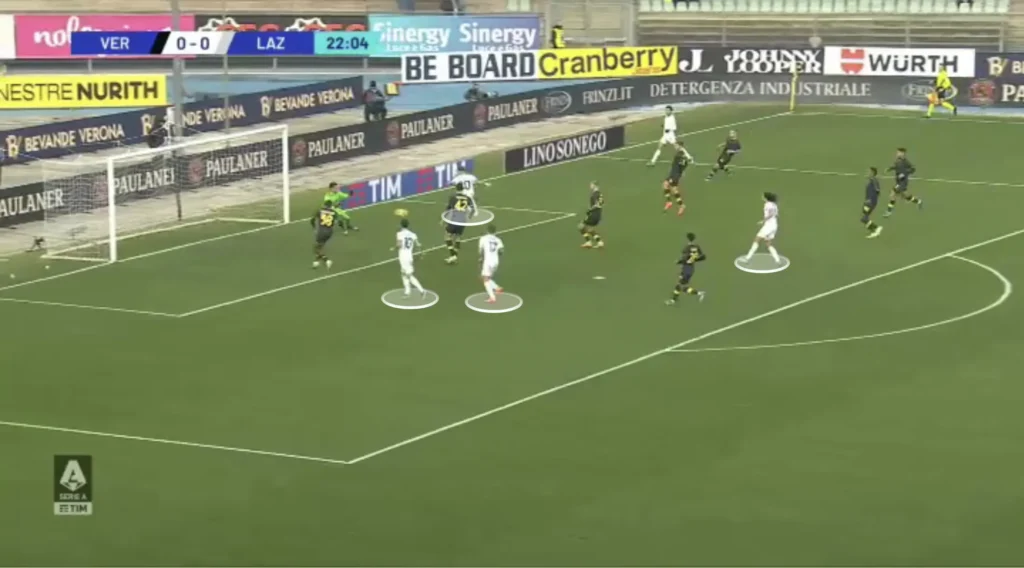
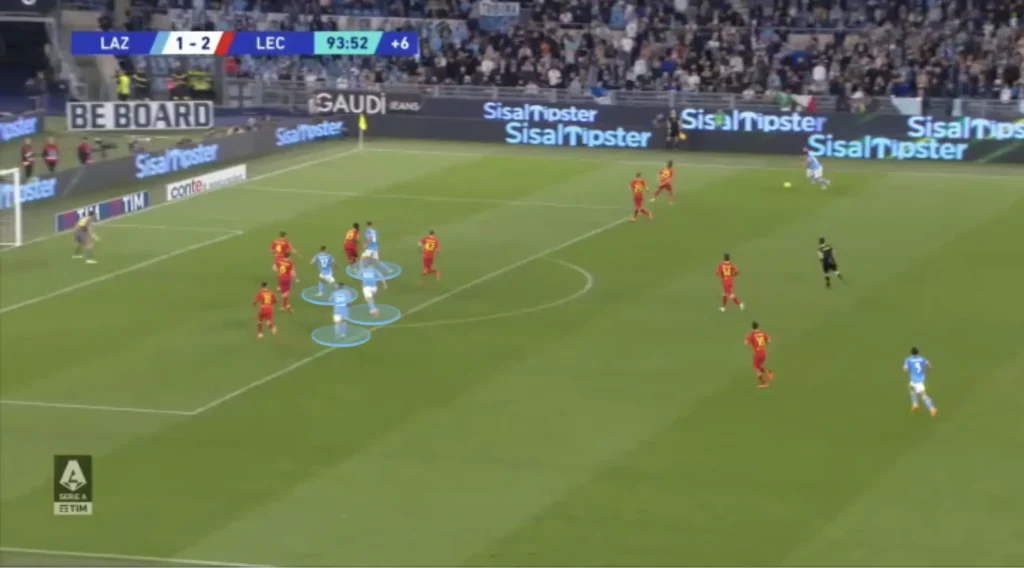
The opposition backline is often preoccupied with the Lazio forward line, meaning that the runs into the box from the midfielders become uncontested. Crosses to midfielders running into the box can be very effective and is something that Sarri’s team uses often.
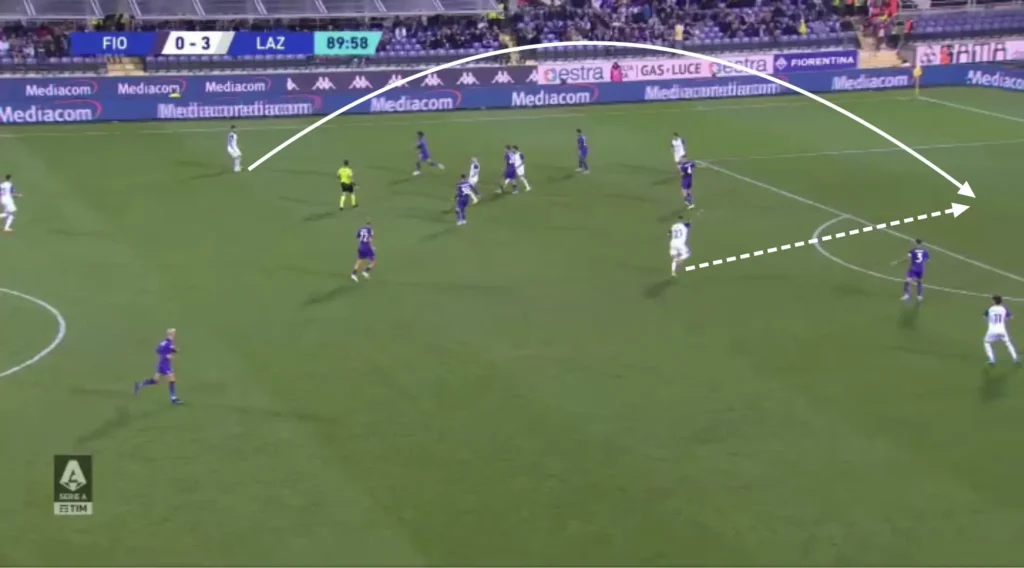
Offensive Transitions
Maurizio Sarri also wants his team to counterattack in their offensive transitions. They do this with a high tempo, often attacking the spaces between the center-backs and fullbacks. Their defensive shape allows them to get four or five players into their counterattacks, giving them numerical advantages to exploit, which gets them many goalscoring opportunities.
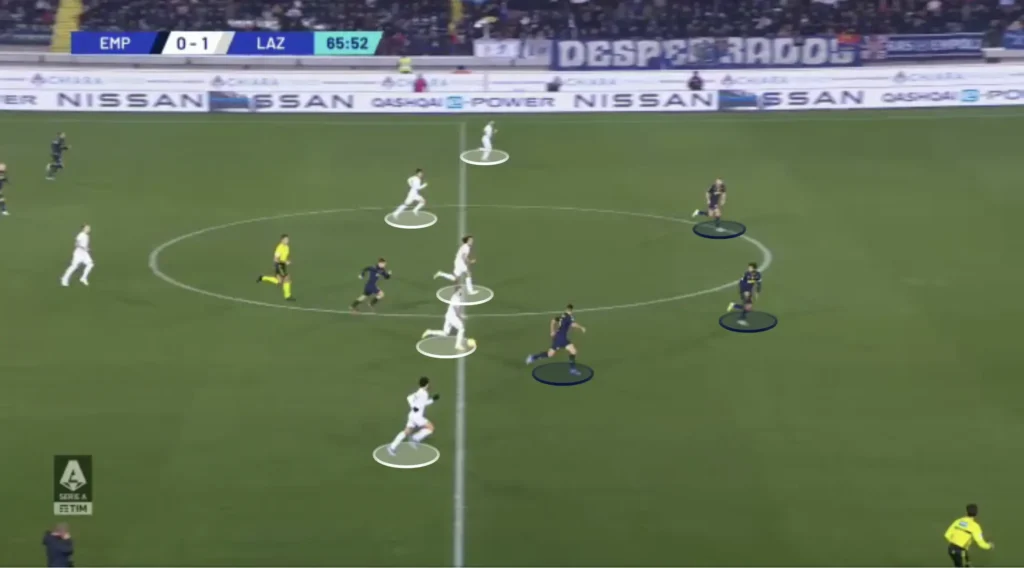
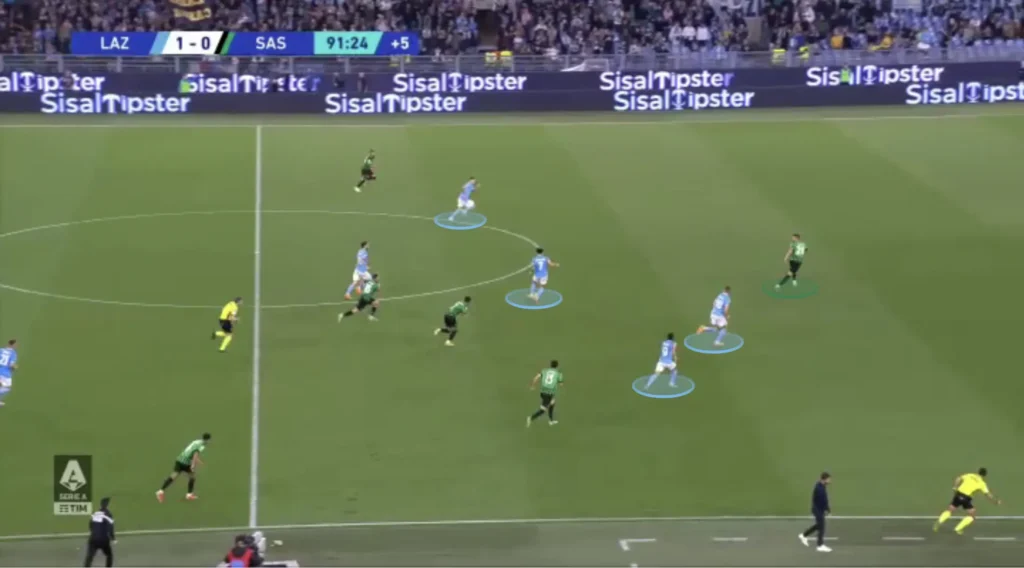
Principles and Tools
Rotations and Interchanges
Maurizio Sarri wants his team to play attacking and offensive football, regardless of the opposition. They like keeping possession and are often successful in doing so. One influential principle in doing this is to be fluid within the system and to find different interchanges and rotations. They most frequently rotate with their winger, fullback, and number-eight. It is a synchronized motion where the fullback pushes up, the winger tucks into the midfield, and the number-eight drops down in a fullback position. The 1-4-3-3 shape is kept, but the players are in new positions. This movement forces the defending players to decide whether to follow the Lazio players or to stay in their position, often confusing them and making the defense more unorganized.

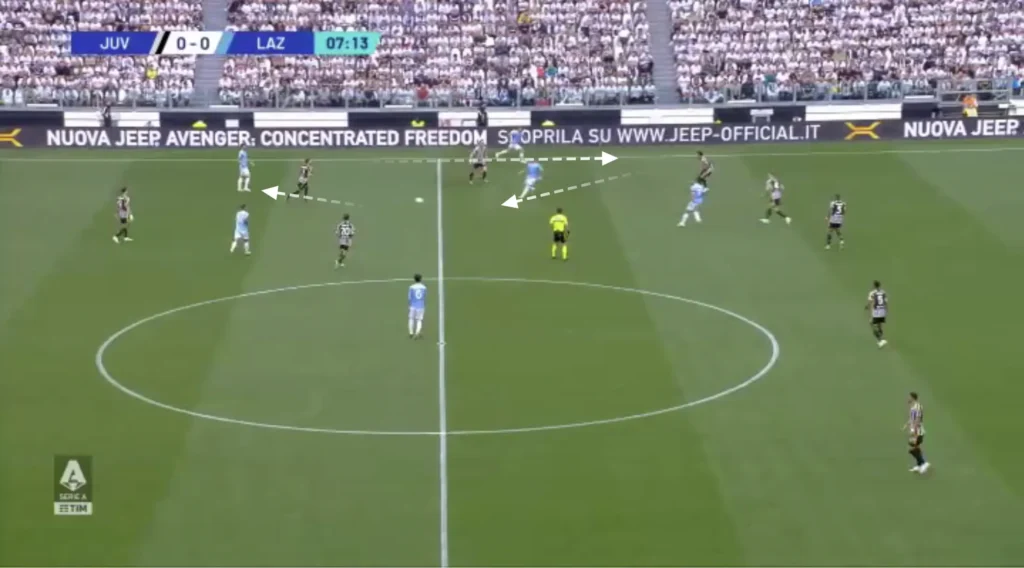
Lazio also confuse the opposition by switching positions on the winger and the number-eight. This, as established, makes it difficult for the opposition to defend because they have to decide whether to follow the Lazio player or stay in their position.

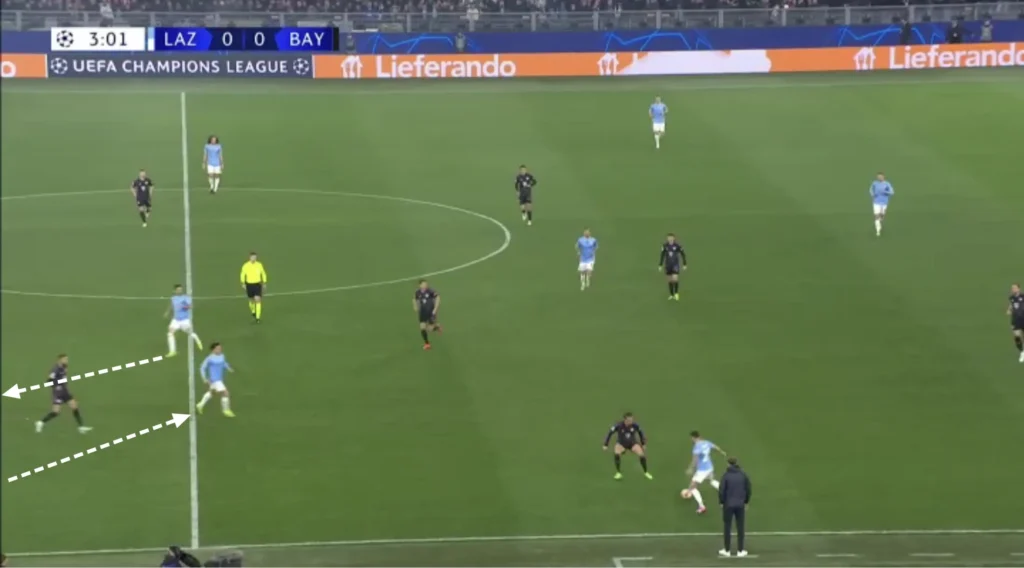
The midfield three also rotate and interchange between themselves, which punishes teams that defend man-to-man against them.
Third-Man
Maurizio Sarri likes it when his team plays through the opposition. One vital tool that they often use is the third-man principle. This means using a third player to reach a free player whose passing lane is blocked.
Lazio often do this when the opposition uses one striker to find the free center-back. When the center-back gets pressed by the striker, he plays the ball to a midfielder, who then finds the other center-back.
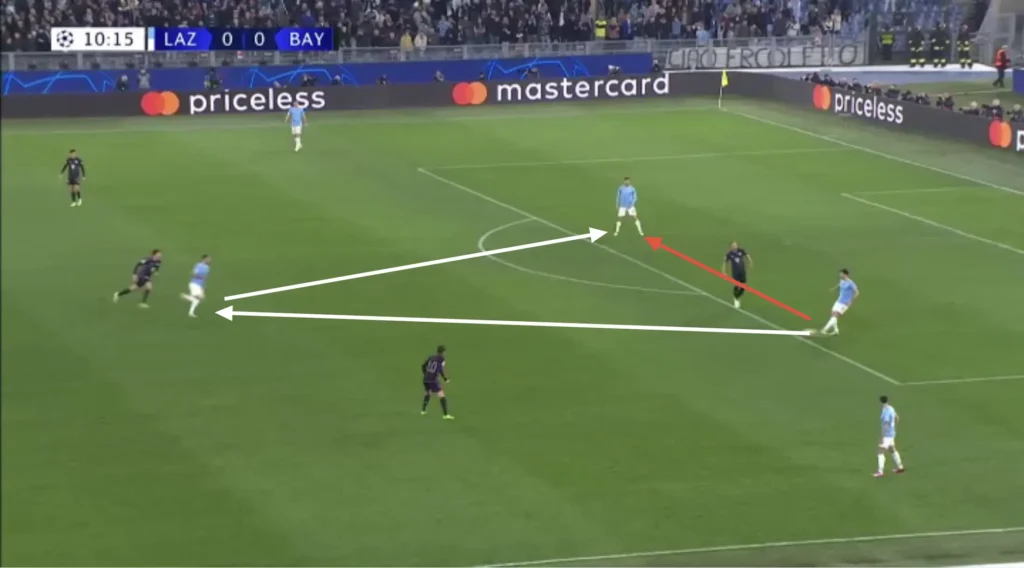
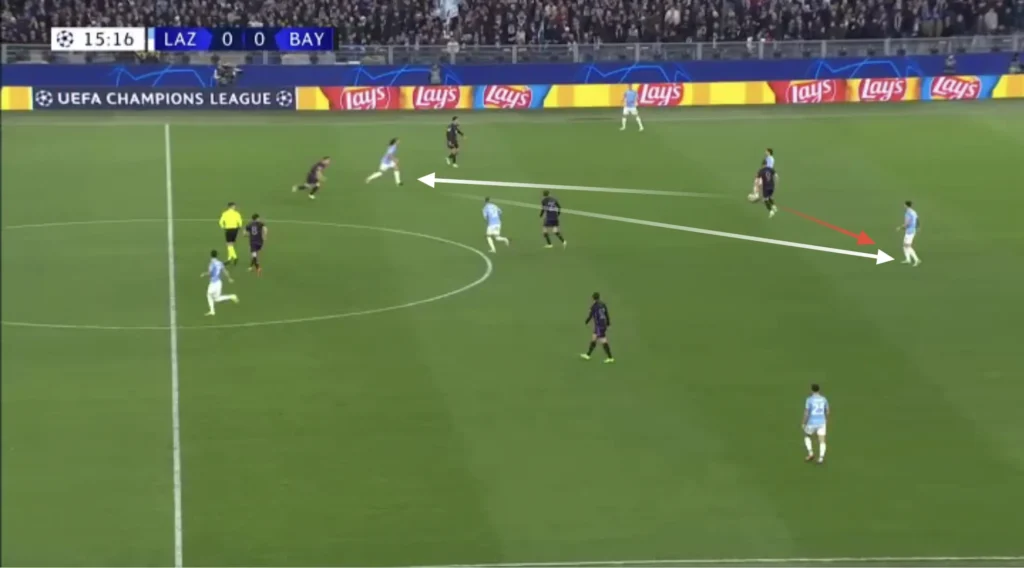
When the opposition uses two strikers, Lazio use the third man to find the free number-six. Here, the center-back plays the ball to a dropping number-eight when pressured, who gives it to the open number-six.
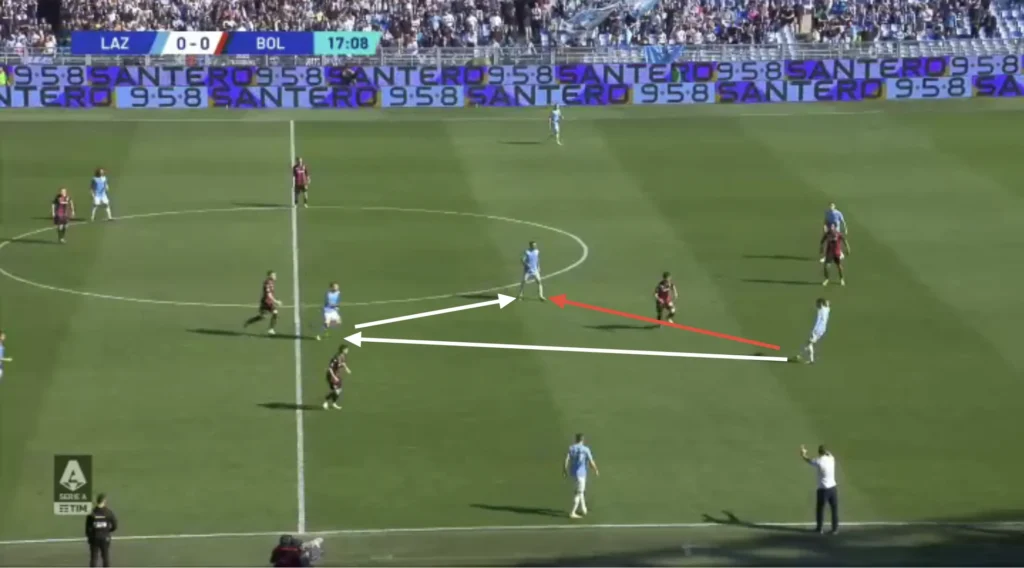
Defending
High Press
Maurizio Sarri’s Lazio presses the opposition high when possible and do so in a 1-4-3-3 formation:
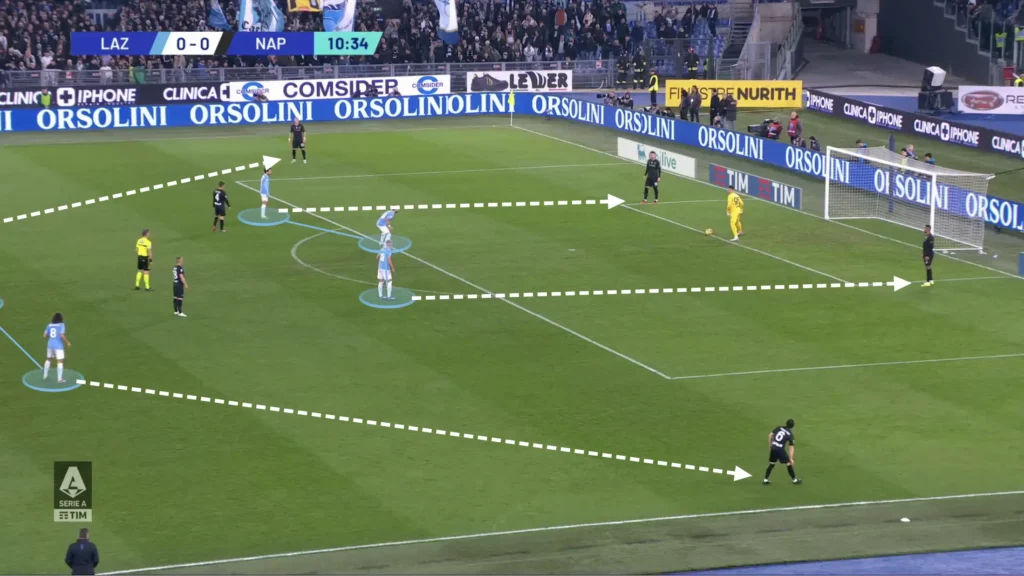
The wingers stay central and press the center-backs, while the ball-side central midfielder goes to the fullback when the ball gets played to him. Their press trigger is usually the ball being played to the fullback. The midfielder will instantly come to press with the rest of the team coming across to support and the winger closing the backless to the center-back.
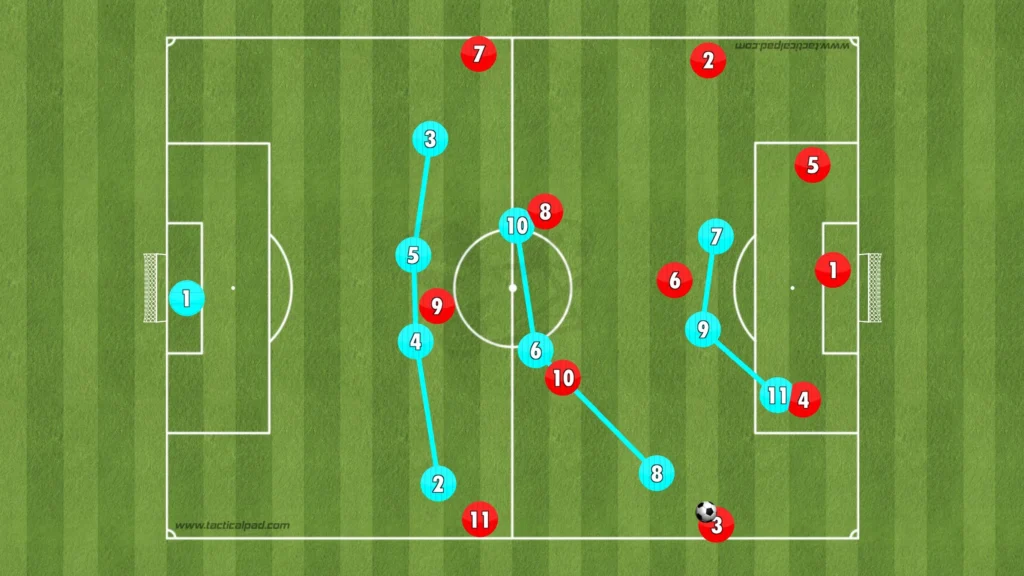
Low Press
In the low press, Lazio set up in a 1-4-1-4-1 formation. They look to set up in a mid-block, always trying to stay compact while closing the center, forcing the opposition out wide.
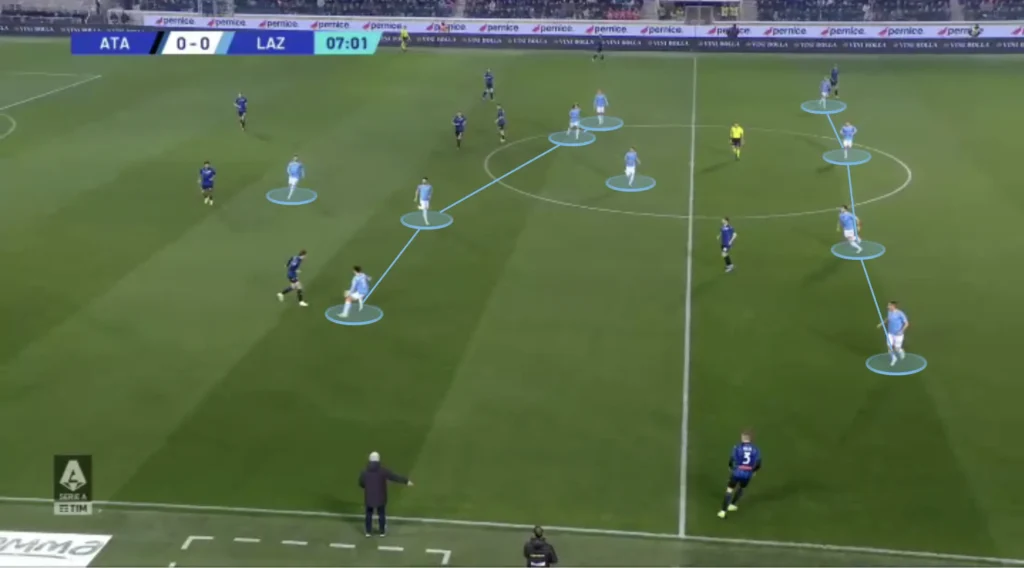
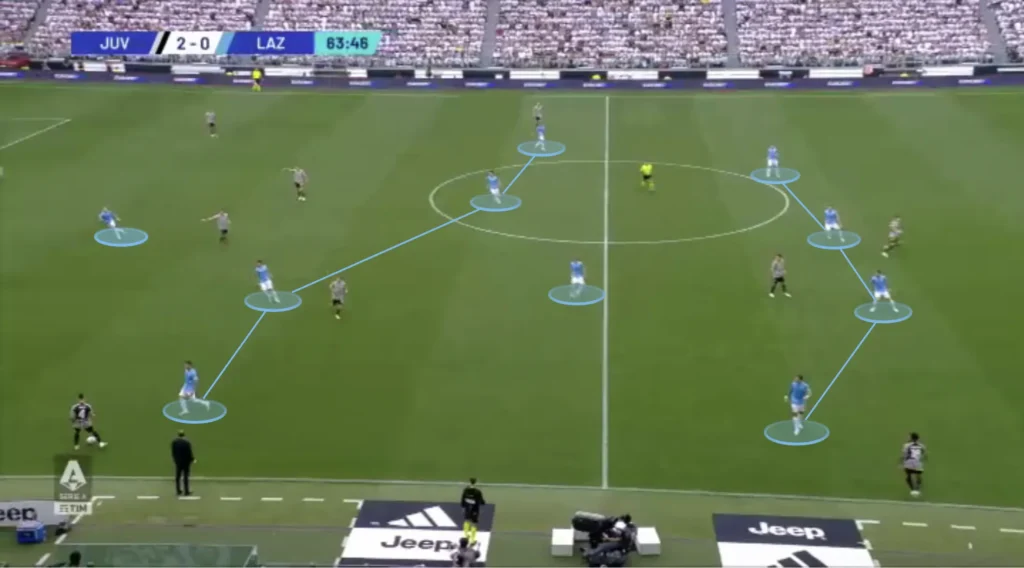
One tool that helps to be compact is to play with a high backline, making the space to the midfield line as small as possible. Sarri wants his team to do this, and they try to keep the highest line they can without leaving the space behind them too open.
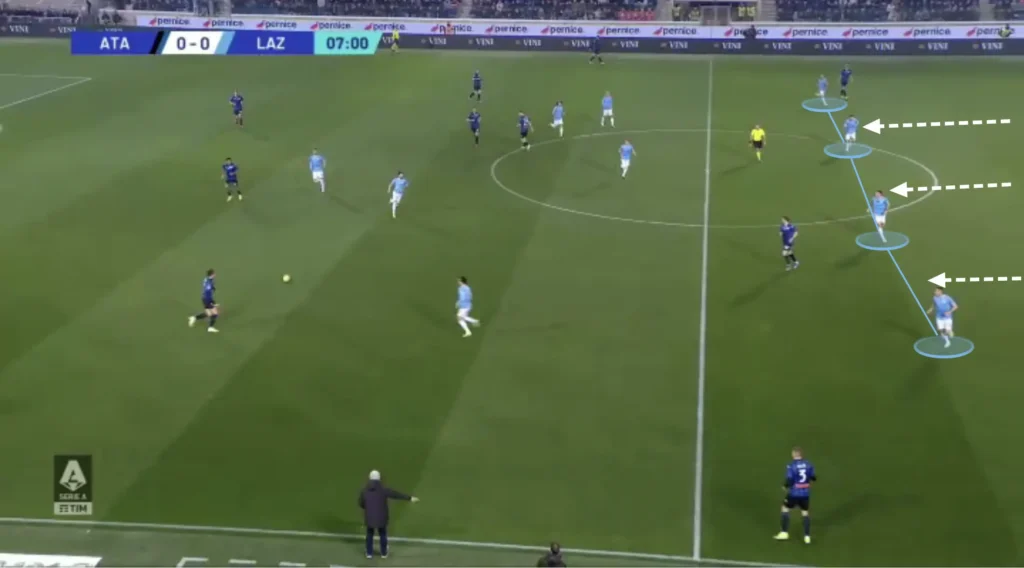
Sarri’s Lazio also look to squeeze the pitch when defending. This means constantly pushing the team up as much as possible in the low press. They do this by pressing the center-backs with the central midfielders. The Lazio midfielders push up when the center-backs get the ball, while the rest of the team also push up. They do this because it forces the opponent further from Lazio’s goal, making it harder to create chances. Squeezing the pitch when possible is crucial for teams who do not necessarily look to always be in possession.
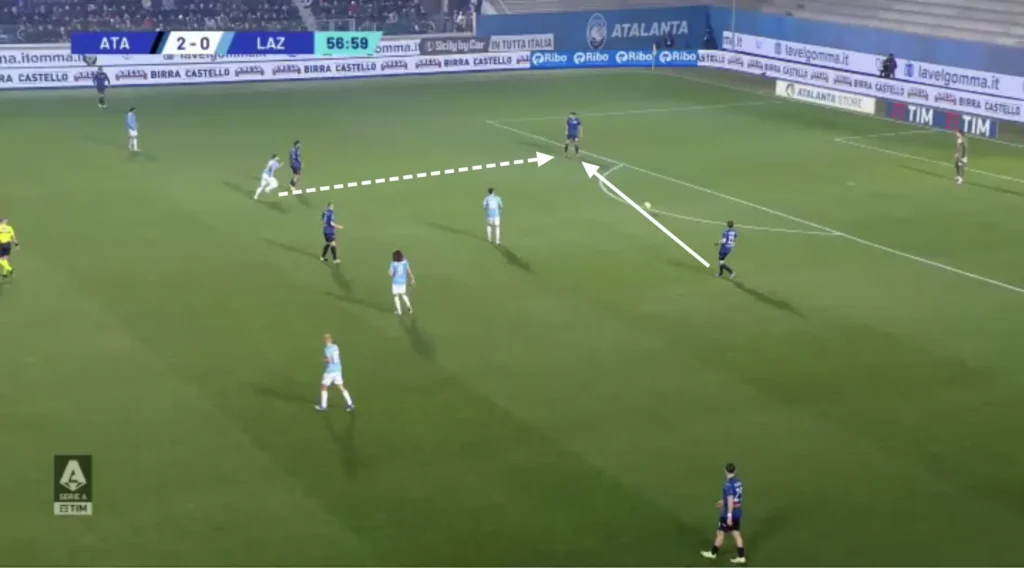
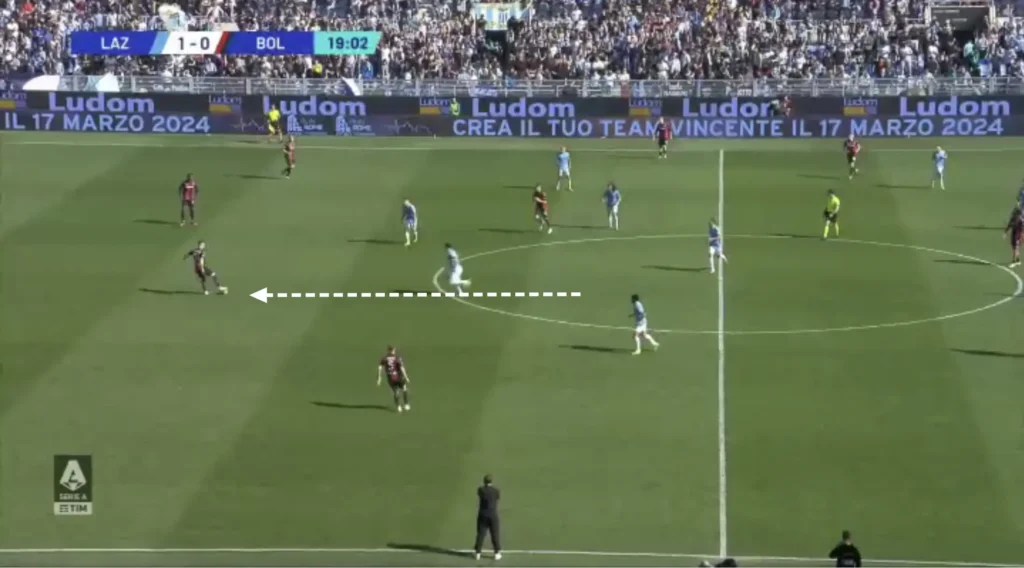
Final Thoughts
In conclusion, this tactical analysis delves into Maurizio Sarri and his distinctive approach to coaching and its impact on Lazio’s style of play. Examining key tactics such as the build-up, offensive strategies, and defensive organization, we unravel the intricacies of Sarri’s tactics. His emphasis on positional play and quick ball circulation has brought a new dimension to Lazio’s game. While the journey with Sarri at Lazio is ongoing, this analysis provides insights into the tactical nuances that define his managerial philosophy. As Sarri continues to imprint his style on the team, football enthusiasts will keenly observe how Lazio evolves under his guidance on the pitch.
